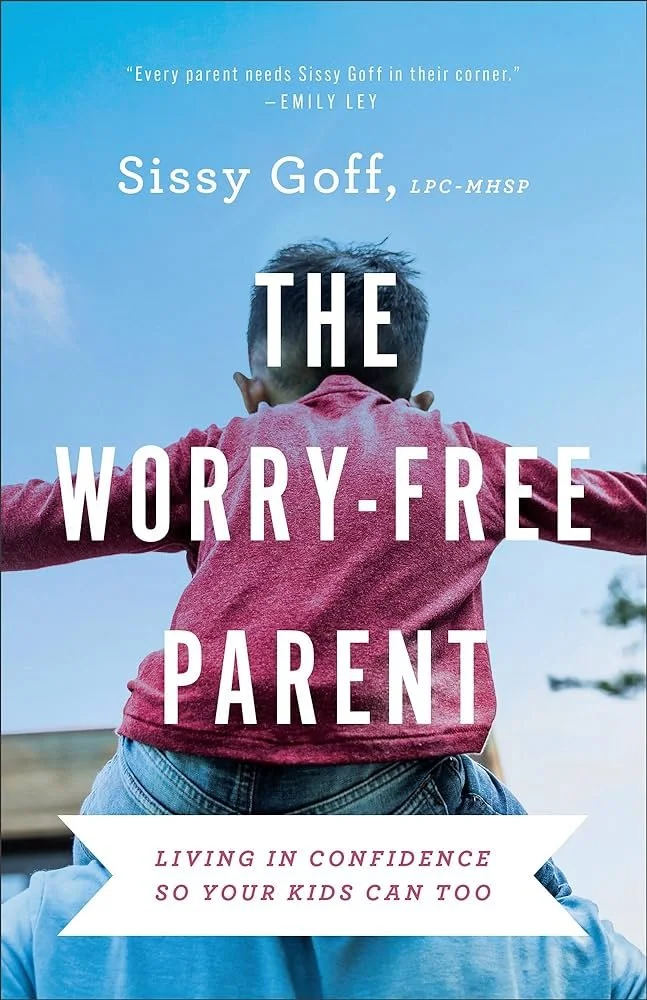Turning a Relational Oops Into a Relational Opportunity
One of the most hair-pulling parts of parenting is disciplining well. Even harder is when we’re trying to teach our kids how to treat others well and we catch ourselves (or they catch us!) not living up to our own standards. How can parents teach their kids – and teach in a way that will “stick” for life – when we don’t always behave as we say we believe?
As a therapist working with kids and their parents, I hear the freight and the fragility of the question. It’s a big responsibility raising a kid – so much is in your hands and so much is totally outside your control (in some ways you are and in some ways you aren’t responsible for “how they turn out”). Navigating how to be a good enough parent can feel like a full time job in itself.
What I want to share loud and clear today comes from Dr. Garry Landreth, a pioneering counselor and researcher in Child-Centered Play Therapy. What I want you to hear from him is this:
“The most important thing may not be what you do but what you do after what you have done.”
No one is a perfect parent. Everyone makes mistakes. And when there is a rupture in a parent-child relationship, parents have this incredible opportunity to repair and reconnect. Not only does owning when we’ve made mistakes model humility for children, it also communicates that we love them enough to admit we’re wrong (which everyone knows is so, so hard) and to try to rebuild what is broken.
One way to circle back and repair is to take responsibility for what you did:
“Hey, do you remember when I did/said ___ earlier today? I shouldn’t have done that because I know better, but in that moment I did ___ instead. I’m sorry.”
Validating the emotion or response your child offers is a way of developing empathy in your relationship. Maybe they’re angry – “I can see why you would still be angry about it. I shouldn’t have done that and it probably still hurts.” – or maybe they’re sad – “That was really hard for you when I did/said that. I see that now and wish I’d seen that then.”
Responding in a way like this can not only help repair your current relationship with your child but can also model for them how to handle future relationships when (not if!) things go sideways. The story is not over even when the moment has passed. The next time you think back with a tinge of regret and acknowledge that there could have been a better way to respond, will you embrace that as an opportunity?
If this has stirred something in you about one of your relationships – maybe as a parent, a child, a partner, or even a friend – and would want someone to walk with you through improving that relationship, I would look forward to serving you.
A Salutation and Invitation for Our Teachers
You love on our loved ones so well. You teach, guide, shepherd, and mentor, while also caring for your own family and friends. Your days are long and often we imagine that it is hard to find the time to care for yourself. As you may have a more flexible schedule this summer, we at Raleigh Psychology would feel privileged to care for you. We could talk through creating regular rhythms of margin, create sustainable patterns for caring for yourself, or process that difficult situation that haunts you in quiet moments when the busyness dies down. We celebrate the end of the year with you! And would welcome the opportunity to get your bearings with you and set up the following year for success.
Empowering Our Kids to Stand Against Body Shaming
By Lindsay Jordan, LCSW
Sadly, I have been hearing of fat shaming and bullying in our school halls (and classrooms) so would like to recommend Dr. Lisa Damour's podcast, Ask Lisa, episode 216. Hear are some main points that I ask for you to discuss with each of your children (at minute 22 in the podcast):
If your child witnesses bullying of any kind... if they are standing there when one kid goes after another kid and there is a power imbalance, you can NOT do nothing... you have to do 1 for 3 things...
Tell the kid who is doing it to Knock it off. (there is a great video about teaching kids to turn it back on the bully with flattery about how great they are (BrooksGibbs.com How to Stop a Bully)... or ask "what's going on for you that you've turned into this ... I've seen you nicer than this")
Reach out and support the kid on the receiving end
Get an adult
You don't need to do all 3 but you need to do at least 1!!! Again, doing nothing is not an option.
***It is wrong to criticize (even in a joking manner) somebody for anything related to size, shape, appearance, skin color, religion, ethnicity, sexual orientation, gender. Any identity based or size/shape factor that is used as an insult is wrong!***
Please also consider this as a fresh reminder to not talk about your weight in front of your children. It models unkindness to our bodies.
Fat shaming is going on in school (and on social media). We need to talk about it. It needs to be stopped before more harm is done.
Start a conversation with your kids... ask them if they've been seeing/hearing bullying... and go from there. Be curious and compassionate.
Unifying the Union
In order to have consistent connection and communication, couple’s should consider having a ‘meeting’, either every day or once a week. The well known couple’s therapist, John Gottman, calls this the ‘State of the Union’. If that name sounds too formal for you, you and your partner might consider something like ‘Couple’s Corner’ or ‘The 411’, whatever suits you!
During these regular meetings, you might discuss regular topics like finances or upcoming schedules or plans. But most importantly, this regular connection time should be used as an ‘emotional check in’. This means that each partner will ask the other one questions to touch base on how they are feeling that day or that week. The one sharing can talk about anything from the relationship, to work, to friendships, spirituality, etc. It is meant to be a safe space for partner’s to learn about each other’s inner world and feel understood.
Within the meeting, it is important to follow basic speaker/listener rules.
For specific structure, one might consider this template:
Listener: What’s going well for you this week?
-The speaker can answer with anything in regards to work, family, self, or wins within the relationship.
-Then the listener can respond with various phrases that show they are listening and validating. The listener’s responses can include, but aren’t limited to empathetic statements like:
-‘That’s exciting!’
-‘I can see you’re happy about that.’
-‘I can see that is very important to you.’
Or the listener can reflect and summarize what they hear the partner explaining.
And follow up with questions like:
-’Has this happened to you before?’
-’How does that make you feel?’
-’Tell me more about that!’
-’Are there any other values coming up for you as you share?’
Listener: What’s not going well for you this week?
-The speaker can respond with anything, for example, work, family, self, or conflict within the relationship.
-The listener can follow up with more empathetic statements:
-‘Wow, that must have been very difficult for you.’
-‘I sounds like you’re saying that was a challenge for you.’
-’I hear you. That must be really hard.’
Or the listener can reflect and summarize what they hear the partner explaining.
-And questions like:
-’What emotions did it bring up for you?’
-’How did my actions impact you?’
-’Did it bring up any values? Triggers? Or remind you of other stories in your life?’
-When has this happened before?’
-’Would you like advice? Or help problem solving? If not, I am happy just to listen and support.;’
Listener: How can I serve you this week?
This is where the speaker can share what would be helpful, practical, emotional or kind acts to help cultivate a smoother week for them or to implement desired connection.
(Examples include: Can you make dinner on Monday? It will be a busy day for me. Can you pick up the kids from school tomorrow? Can we go on a date? Can we have time guarded for us and intimacy?)
Then you swap turns and the speaker becomes the listener and the listener becomes the speaker! And remember, it is conversation. You do not have to fit into this template perfectly, and there will likely be more than one response of the speaker and listener during each question. Remember that the purpose is to connect and help the speaker feel understood.
***(If the speaker brings up a conflict within the relationship, after the both partners have their turn being the speaker, the couple should consider problem solving, which can include questions like:
‘What do we agree on?’
‘What values do we have in common with this conflict?’
‘What is inflexible?’
‘What can we try to do differently next time?’
‘What is flexible?’
Top 10 Takeaways from “The Worry Free Parent”, by Sissy Goff
You are the biggest agent of change in your child’s fight against anxiety.
By Raeanne Johnson, CPNP-PMHS
You are the biggest agent of change in your child’s fight against anxiety.
Sissy Goff, LPC-MHSP is the director of child and adolescent counseling at Daystar Counseling Ministries in Nashville, TN. She has written several books and has a podcast called “Raising Boys and Girls” with colleague David Thomas.
The book is divided into three sections, Understanding the Past, Help for the Present and Hope for the Future. Each chapter concludes with a worry free takeaway and little pep talk from Sissy. There is also an accompanying work book which would make this a wonderful tool for small groups. This is written from a Christian worldview, but the strategies are applicable to all belief backgrounds.
1-Statistics on the prevalence of anxiety.
-30% of children and adolescence experience anxiety, 80% never receive help
-If a parent has anxiety, their kids are seven times more likely to deal with it
-Girls are twice as likely as boys to suffer from anxiety, but boys are taken in for
treatment more often.
2-CBT Triangle , what it is and how to use it.
3-Anxiety is caught and taught, both through our brain chemistry and how we relate to our kids.
4-Anxiety makes us attach future meaning to present problems.
5-Anxiety plus intensity equals micromanaging.
6-Five ways the anxiety of parents impacts kids
1-Sidecar parenting-my kid is *just* like me and we’re walking the same anxious road.
2-Backhoe parenting-always going behind and cleaning up after kids-very controling.
3-Snowplow parenting-always making life magical and easy for their kids.
4-Helicopter parenting-hypervigilant and fighting their battles, “overparenting”.
5-Parade float parenting-if I just keep them happy enough, they’ll never be anxious.
7-Neuroplasticity works and creating new pathways is possible-helpful info on amygdala and cortex.
8-Breathwork, grounding and mindfulness discussed at length.
9-Try softer, let the bottom 20% go.
10-Feelings are not facts, they don’t have to overwhelm or define you.





